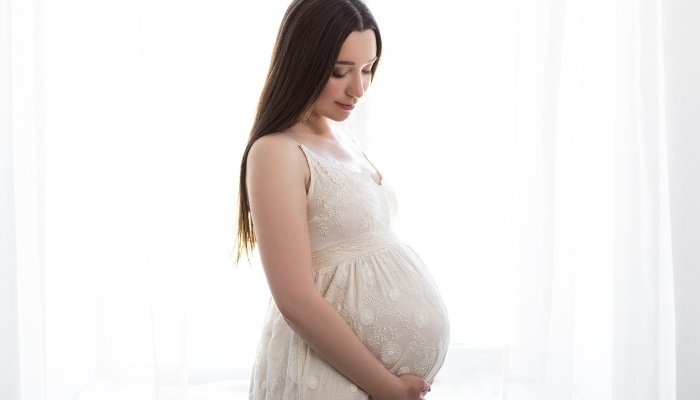Implantation Bleeding With Twins: What You May Experience
As a mother of twins, I remember the excitement and anticipation that came with discovering I was pregnant. However, along with the joy, there were also many questions and uncertainties that arose throughout my journey. One of these concerns was implantation bleeding with twins – a phenomenon that can often occur during early pregnancy but may be more pronounced when carrying two babies.
Is implantation bleeding common with twins? Well, this is considered normal for most women, those expecting twins may have unique experiences due to multiple embryos attaching to the uterus simultaneously. You can get more information from heavy implantation bleeding pictures and stories.
Implantation Bleeding With Twins
So, you’ve just found out you’re pregnant and now you’re experiencing some light spotting. Don’t worry, it might not be cause for alarm! In fact, it could be a sign of something exciting – implantation bleeding with twins! Yes, that’s right, twins!
Why Does Implantation Cause Bleeding?
Ah, implantation. It’s that magical moment when a fertilized egg snuggles into the cozy lining of the uterus, getting ready to grow into a tiny human being.
Implantation bleeding is not your typical heavy-flow situation. It’s more like light spotting or a few drops of blood on your undies. So don’t freak out if you see a bit of red when you’re expecting.
When that little embryo burrows itself deep into the uterine lining during implantation, it can sometimes disrupt tiny blood vessels in its path.
When Implantation Bleeding Occurs
Generally, implantation bleeding takes place anywhere from a week to 12 days after fertilization. Yes, it’s that precise! However, this timeframe may vary slightly from person to person.
How Long Does Implantation Bleeding Lasts
Well, it can vary from woman to woman, lasting anywhere from a few hours to a couple of days. The duration and intensity of the bleeding can differ for each individual. Some women may only notice a few drops or light pink spots that quickly disappear within a matter of hours. In these cases, it may be easy to mistake this slight bleeding for random spotting.
Does Heavy Implantation Bleeding Mean Twins?
Hold your horses! Despite what some may say, heavy implantation bleeding does not necessarily mean that you are going to have twins. While it’s true that heavy bleeding during the early stages of pregnancy can be a sign of multiples. There is no scientific evidence and there are various reasons why heavy implantation bleeding might occur besides multiple pregnancies.
What Does Implantation Feel Like With Twins?
It feels some cramping and sharp pain that eventually faded to a dull ache. And on top of that, your breasts are sore, you’re exhausted all the time, and experiencing bouts of nausea.
Cramping and sharp pain can indeed be signs of implantation with twins or singleton. But here’s the twist, while mild cramps and twinges are commonly associated with implantation in general, having these sensations intensify or last longer than usual could potentially be a sign of twins.
Do Twins Implant on the Same Day?
Twins are often seen as two peas in a pod, sharing everything from looks to birthdays. Check out our twins birthday photoshoot ideas and twins birthday party theme ideas to make your occasion special.
But have you ever wondered if twins always implant on the same day? Well, most of the time they do! When a woman releases multiple eggs during ovulation and both are fertilized by different sperm, they usually implant in the uterus at around the same time. This is why fraternal twins, who develop from two separate eggs and sperm, are typically conceived and implanted simultaneously.
However, there are rare cases that defy this norm. In a phenomenon known as superfetation, a second egg can be fertilized and implant days or even weeks after the first one. This incredible occurrence happens when a woman continues to ovulate after becoming pregnant with one baby. Essentially, her body releases another egg that gets fertilized at a later point in time.
Implantation Bleeding Twice With Twins
Let me tell you right off the bat that it’s highly unlikely. Most women won’t experience implantation bleeding more than once in their pregnancy journey.
Now, when it comes to twins, the chances of experiencing implantation bleeding twice are slim. This is because both embryos usually implant at the same time and in close proximity within the uterus.
Late Implantation Twins
Sometimes, in rare cases, identical twins can be conceived from a single fertilized egg that splits at different times. It might sound like something out of a science fiction novel, but it’s actually a fascinating phenomenon known as late implantation twins. In these instances, the fertilized egg implants into the uterus at different stages, resulting in twins with slightly different gestational ages.
Late implantation occurs when one twin implants into the uterine lining earlier than the other. This delay in implantation can range from just a few days to several weeks. As a result, when both embryos eventually begin their development process, they do so with slightly different timelines.
Implantation Bleeding vs. Period

Many women often confuse implantation bleeding with their regular menstrual period due to the similarities in their appearance. However, understanding the key differences between these two phenomena is crucial for anyone trying to conceive or simply wanting to track their reproductive health.
Periods typically start slowly and gradually increase in amount over a day or two. On the other hand, implantation bleeding usually consists of light spotting that occurs around six to twelve days after conception. This bleeding is generally much lighter than a regular period and does not follow the typical pattern of increasing flow.
While both periods and implantation bleeding can range from dark red to bright red in color, there are nuances worth noting.
Implantation Bleeding vs. Miscarriage

Implantation bleeding and miscarriage can often be confusing for women trying to conceive or those who suspect they may be pregnant. There are distinct differences in their patterns and characteristics that can help distinguish one from the other.
One key difference is the appearance of the bleeding. Implantation bleeding, which occurs when a fertilized egg attaches itself to the uterine lining, is usually lighter in color and flow compared to a regular period. It may appear as light pink or brown spotting and typically lasts for only a few hours or up to three days.
On the other hand, miscarriage bleeding tends to resemble a heavier period with bright red blood that may contain clots. The bleeding associated with a miscarriage can continue for several days and become progressively heavier over time.
Related Question:
Is Spotting Normal at 5 Weeks?
Experiencing light spotting during the early stages of pregnancy can be a cause for concern. However, it is important to know that light spotting is actually quite normal at five weeks. This phenomenon, known as implantation bleeding, occurs when the fertilized egg attaches itself to the lining of the uterus. It typically presents as small amounts of pink or brown discharge and may last for a few hours or up to a few days.
If I Have Implantation Bleeding, Will a Pregnancy Test Be Positive?
Implantation bleeding is a common occurrence for some women in the early stages of pregnancy. While it may be tempting to take a pregnancy test immediately after experiencing implantation bleeding, it’s important to note that it’s highly unlikely for the test to show positive results at this stage.
This is because implantation bleeding typically occurs around six to twelve days after conception, which is still too early for most pregnancy tests to detect the hormone hCG (human chorionic gonadotropin) responsible for indicating pregnancy.
The reason behind this is that implantation bleeding usually happens before there are high enough levels of hCG in your body that can be detected by a home pregnancy test.
Conclusion
Experiencing implantation bleeding with twins can be both exciting and worrisome. It is important to remember that every pregnancy is unique and the presence or absence of implantation bleeding does not necessarily indicate the number of embryos implanted.
However, if you do experience this type of bleeding and suspect you may be pregnant with twins, it is important to consult with your healthcare provider for proper monitoring and care. Remember to take care of yourself during this special time and trust in the guidance of your medical team. Stay positive and enjoy the journey ahead as you eagerly await the arrival of your little ones.






